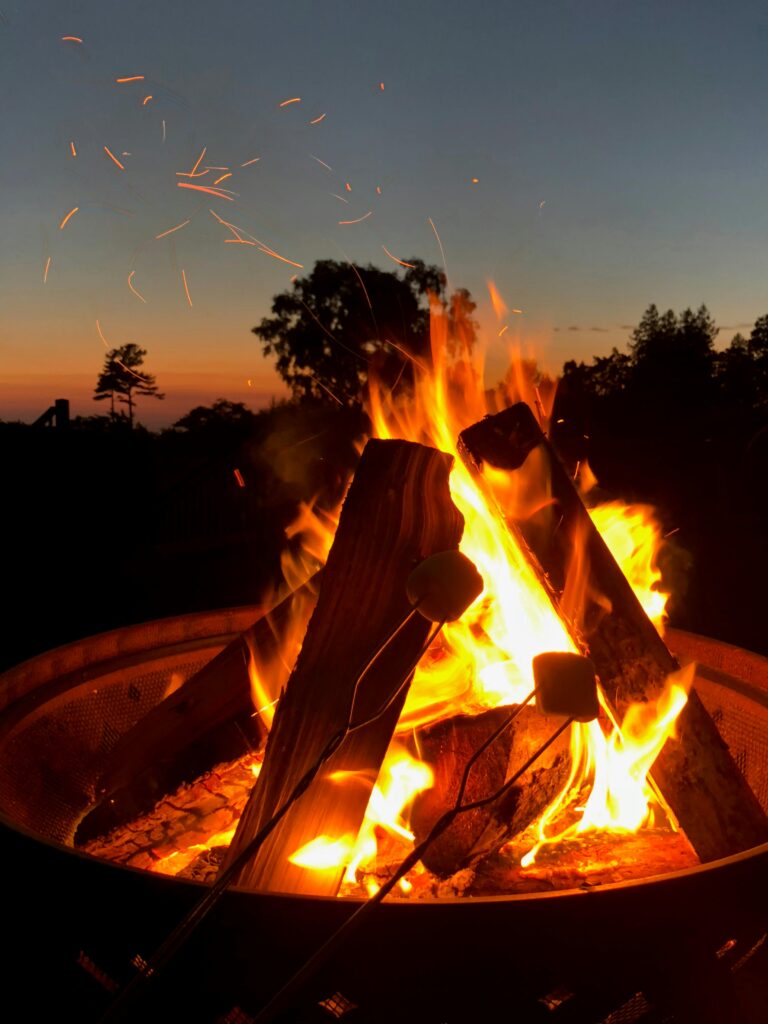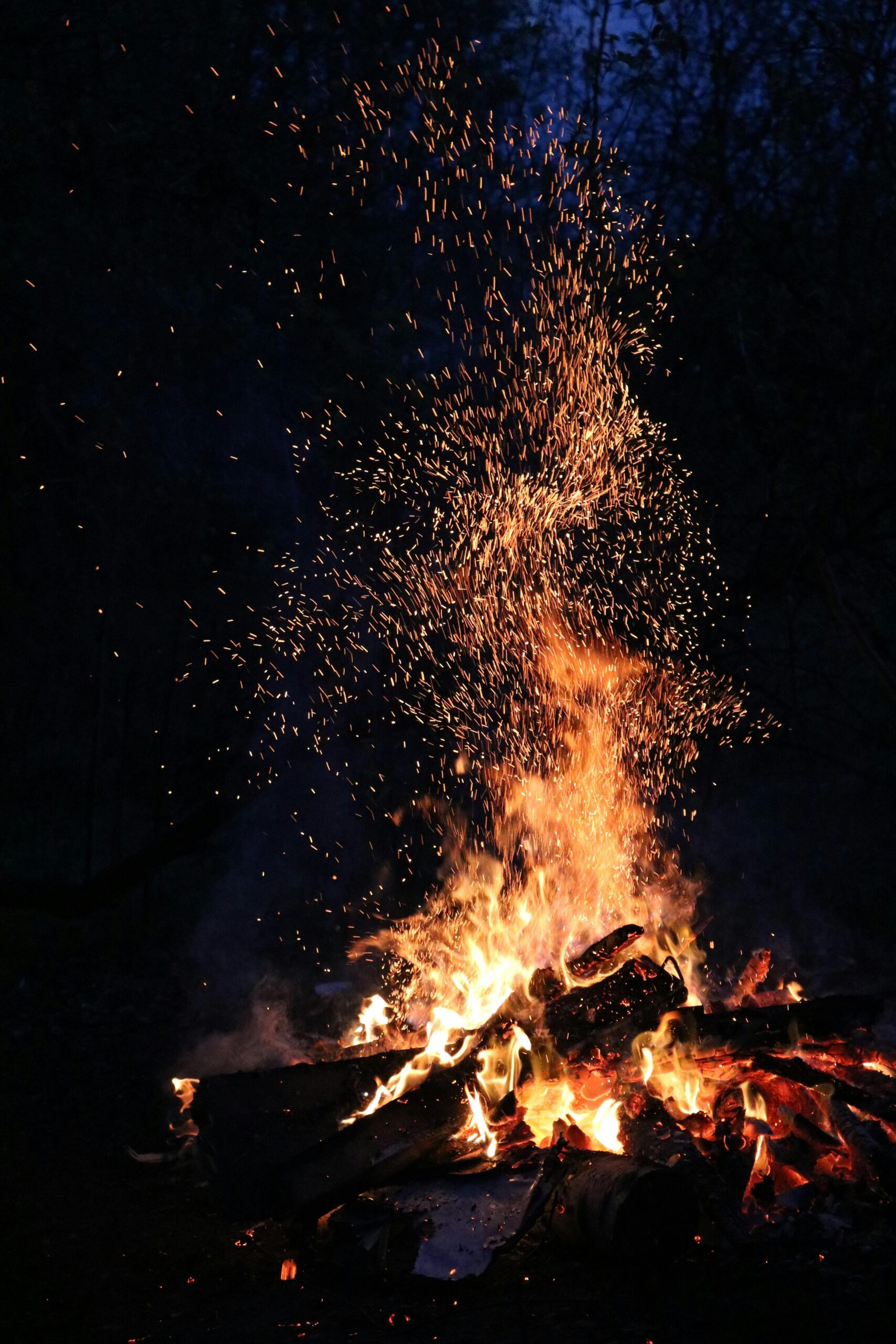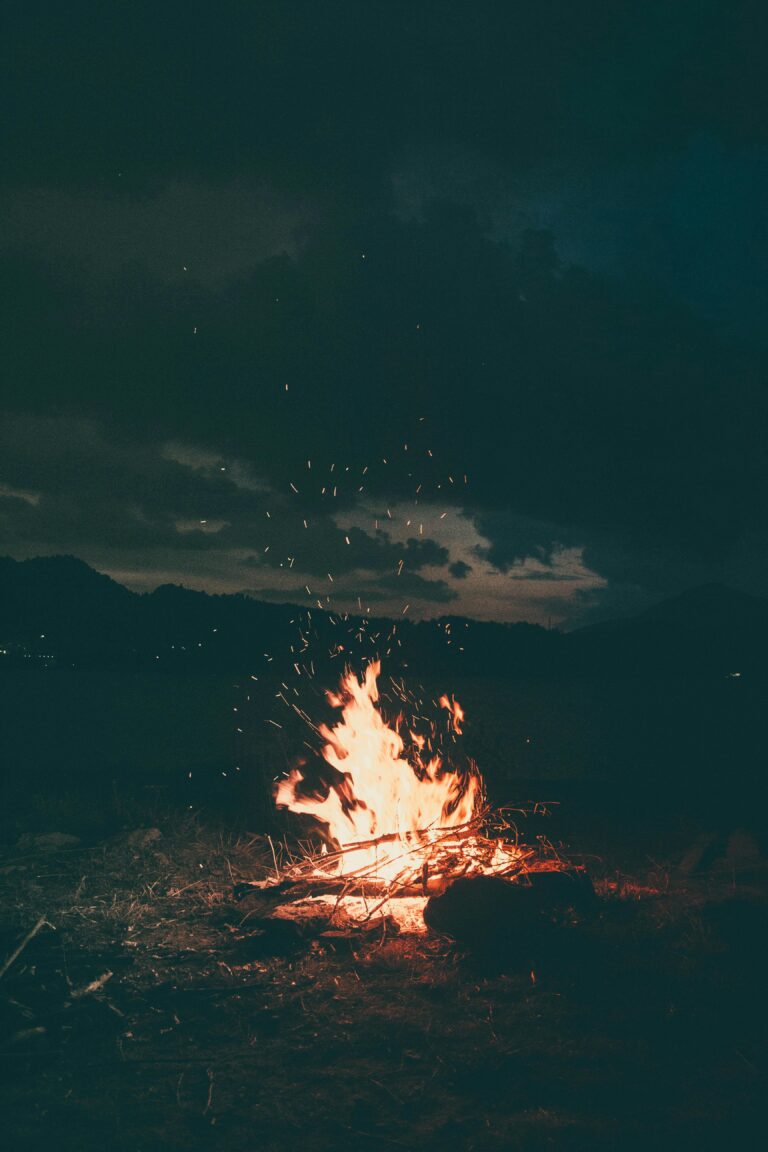Scientists and archaeologists widely agree that ancestral human species’ control of fire dates back as far as 1 million years ago. Fire’s significance to the development of humans is far reaching. An attempt to anthologize the entire history of humanity and fire is beyond the scope of this site. However, many implications of fire are worthy of additional exploration. Through this series we will unveil a glimpse of nuanced human experiences with fire. In doing so, we can gain a greater appreciation for our past and the natural world.
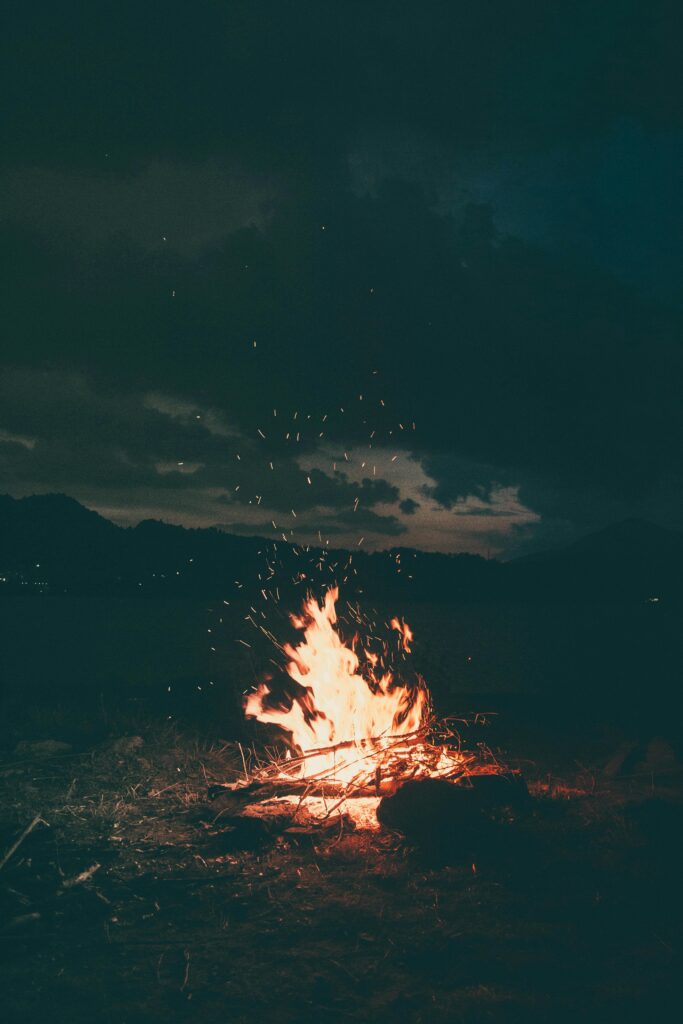
Part I: Early Implications
One of the earliest implications of controlled fire was the ability to cook food. In doing so, early humans extracted greater energy from food. As anthropologist Dr. Richard W. Wrangham argues, such strides contributed to larger brain development.
Moreover fire shaped early division of labor and created a communal focal point. As fire centered skills developed, such as cooking and tool making, a division of labor emerged within early human societies. The required nurturing to fire kept certain individuals bound to its flames. While firewood resourcing and more ambitious hunting endeavors necessitated larger group collaboration. Expanding human communities relied on the fire as a nexus of interaction.
Beyond its physiological and psychological comfort, fire offered a locale around which society developed. Polly W. Weissner observed the dichotomy of day and night time conversations amongst Ju’/hoansi Bushmen of southern Africa. Her research indicates that night time conversation, afforded by the extended light of fires, allowed additional time for conversations of leisure and entertainment. While, daytime conversations significantly focused on matters of work. Such extension of communal time exemplifies fire’s likely significance to the development of early society.
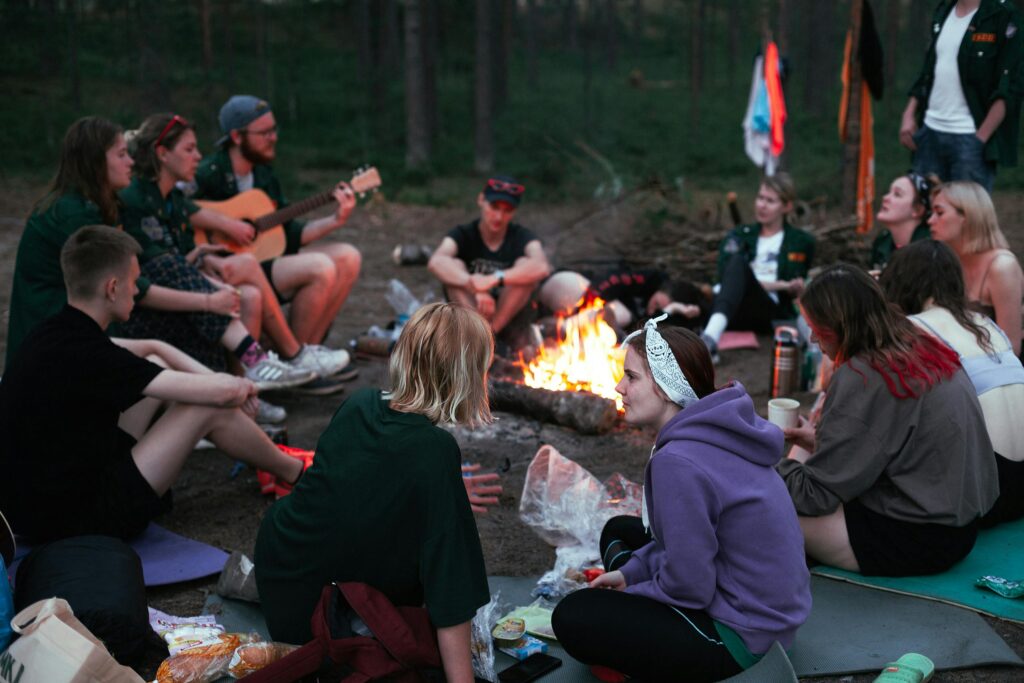
In the modern western mind, a controlled fire is often associated with the familiar crackle of a bonfire. For some, the campfire evokes nostalgic memories of fading summer days spent with family and friends. The campfire is an irrevocably innate part of the western cultural imagination. That is, it is inherently intertwined with our cultural past and our perception of that past. Across other cultures, fire likely evokes similarly significant, though nuanced, cultural memory.
When we gather around fires we partake in a million year old tradition. Flame and smoke rise to the same sky as our early human ancestors. Wood burns to ash on the same earth. The content of experience may differ, but the centrality of fire to community or perhaps solitude has not.
As Unknown once said, “A campfire is basically just a nightclub in the mountains.”
